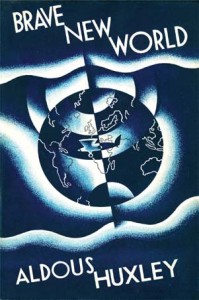A Conference on Bioethics and Humanities, and Future Planning
Last week I traveled to Atlanta, Georgia, where the American Society for Bioethics and Humanities (ASBH)* held its annual meeting. Most of a thousand people participated in the four-day conference. The sessions drew a mix of nerdy physicians like me, nurses, professional bioethicists, philosophy professors, a few lawyers, historians and artists.
It was really a lot of fun. Fun, that is, if you’re into subjects like philosophy in medicine, literature in medicine, medicine in literature, ethics in medicine, technology and privacy, justice and parsimony in health care, etc. I hadn’t heard the word “epistemic” so many times since I was in college. I felt young and idealistic, talking seriously about philosophy, as though it matters. (For the record: it does.) This was, clearly, a medical society meeting unlike others. For instance, an academic named Woods Nash, of the University of Tennessee, gave a talk on David Foster Wallace’s story, “Luckily the Account Representative Knew CPR.”

On the first day, I walked into a provocative plenary talk by Julian Savulescu, an ethicist and Oxford professor. He presented an argument that that using medical tools for the purpose of moral bioenhancement might be a good thing. (If this topic brings to mind A Clockwork Orange, you’re on track. Think also of Huxley’s soma, as a questioner raised.) All very serious. The next day, a packed ballroom of people heard from Amy Gutmann, President of the University of Pennsylvania and Chair of the Presidential Commission for the Study of Bioethical Issues. She spoke about the concept of deliberative democracy, and the value of teaching ethics. Toward the end, she entered into a humorous and seemingly candid discussion of men and women in the workplace, “having it all,” and common sense. “Time is finite,” she mentioned.
I could go on, and list all the lectures and smaller sessions, but this post would get dry. Besides, I couldn’t possibly attend each one, nor can I give all the speakers’ due credit. Some talks were better than others, as meetings necessarily go. But I can’t resist a plug for the presentation by Rosemarie Garland-Thomson, a professor of women’s studies and English at Emory, on perspective and disability. Another favorite had to do with technology and science. David Magnus, of Stanford University, considered whether research accomplished through gamification – a means of crowd-sourcing science – on platforms like FoldIt, EteRNA and EyeWire should be covered by the usual rules for biomedical research. “Are the players scientists?” he asked.
The tone, overall, was intense. Intellectual, brain-stimulating… By contrast to other medical meetings I’ve attended, there was little glitz, scant makeup and limited Wireless. Perhaps the most surprising aspect of the ASBH conference was the distribution of freebies at booths in a display area, where attendees gathered for an opening evening reception and, on other days, breakfasts. Of course it was all minor stuff handed out, like pens and candy, mainly from university departments seeking applicants for fellowships, and academic presses selling books. The most substantive, and useful, gift I received (or “accepted” – a term with greater moral accuracy, from my perspective) was a green umbrella from the Hastings Center – a bioethics stronghold where I’d love to spend some time learning and doing research, in the future.
On Sunday morning, I attended one of the last sessions, on decision aids in bioethics. We lingerers were treated to three terrific talks. I can’t cover them all. So to close this post, I’ll refer to the promising work of Michael Green, a physician and bioethicist at the Penn State College of Medicine. He and colleagues have been developing an on-line decision tool for advanced care planning with grant support from the NIH, the American Cancer Society and elsewhere. The website, MakingYourWishesKnown.com, enables individuals to detail their wishes through an interactive questionnaire. Green and his colleagues collect and publish data on users’ feelings upon using the decision aid. They can measure, for instance, if it gives people a sense of control, or reduces fear, and if patients’ families and doctors find the “outputs” useful. I, for one, intend to try out the MYWK website.
And I do hope to attend another ASBH meeting. Next year’s is planned for October, in San Diego.
All for a while,
ES
—
*disclosure: I joined the society.
Really nice summation- it does sound a like a nerd fest in the best possible way. I feel like attending…I hope to see you in San Diego for the next ASBH meeting.
I hope so too, Madhu. It’s been a while since I’ve been in San Diego –